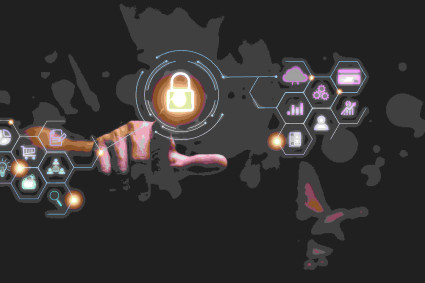
In today's digital age, the protection of personal information has become a critical concern for individuals, organizations, and governments worldwide. With the increasing collection, processing, and sharing of personal data, there is a growing need for comprehensive legislation to ensure privacy rights are upheld. In South Africa, the Protection of Personal Information (POPI) Act serves as a legal framework to safeguard personal information. This article explores the purpose of the POPI Act and its significance in protecting individuals' privacy in the digital era.
Protecting Personal Information
The primary purpose of the POPI Act is to protect the privacy rights of individuals by regulating the collection, storage, processing, and dissemination of their personal information. Personal information includes any data that can identify an individual, such as their name, address, contact details, financial information, and even their biometric or health data. By establishing guidelines and principles for responsible data handling, the Act aims to strike a balance between the legitimate interests of organizations and the protection of individuals' privacy.
Promoting Transparency and Accountability
The POPI Act promotes transparency and accountability in the handling of personal information. Organizations are required to provide individuals with clear and accessible information about the purpose for which their data is being collected, the intended recipients, and any potential risks involved. This transparency enables individuals to make informed decisions about sharing their personal information and holds organizations accountable for their data handling practices.
Enhancing Individual Control
The Act emphasizes the importance of individual control over personal information. It gives individuals the right to determine how their data is collected, used, and shared. Organizations must obtain explicit and voluntary consent from individuals before processing their personal information, ensuring that individuals are aware of and have control over the extent of data processing. Individuals also have the right to access their personal information held by organizations and request corrections or deletions if the data is inaccurate or no longer necessary.
Fostering Data Security and Confidentiality
Another crucial purpose of the POPI Act is to foster data security and confidentiality. Organizations are required to implement appropriate technical and organizational measures to protect personal information from unauthorized access, loss, or destruction. This includes measures such as encryption, access controls, regular risk assessments, and staff training on data protection. By enforcing stringent data security measures, the Act aims to minimize the risk of data breaches and ensure that individuals' personal information is handled with utmost care.
Enabling Cross-Border Data Protection
With the increasing globalization and digital connectivity, the POPI Act also addresses the protection of personal information in cross-border transfers. It establishes requirements for organizations transferring personal data outside of South Africa, ensuring that adequate levels of data protection are maintained. Organizations must ensure that the recipient country offers a similar level of data protection as South Africa or obtain the necessary consent from individuals for such transfers. This provision reinforces the Act's commitment to protecting personal information regardless of geographical boundaries.
Facilitating Economic Growth and Trust
The POPI Act plays a vital role in fostering economic growth and trust in the digital economy. By establishing clear guidelines and legal obligations for data handling, the Act instills confidence in individuals, encouraging them to participate in online transactions and share their personal information with organizations. A robust data protection framework builds trust between organizations and customers, leading to increased customer loyalty, enhanced business opportunities, and ultimately driving economic growth.
The purpose of the POPI Act is to protect the privacy rights of individuals in the digital era. By regulating the collection, processing, and sharing of personal information, the Act promotes transparency, individual control, data security, and confidentiality. It ensures that organizations handle personal information responsibly and establishes legal consequences for non-compliance. The Act's overarching goal is to strike a balance between enabling the benefits of data-driven innovation and safeguarding the privacy and dignity of individuals. In doing so, the POPI Act plays a crucial role in building trust, fostering economic growth, and preserving privacy in our increasingly interconnected world.








